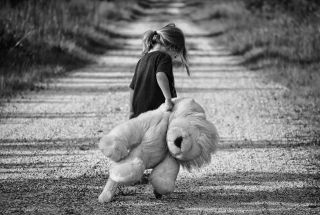
Although the holidays can feel like a pleasurable time for joining with family and loved ones, this is certainly not true for everyone. For many people, the holidays aren’t associated with pleasant family memories or connection. Instead, the holiday season can feel painful, isolating, and stressful for people who were mistreated growing up and don’t have a family they can reach out to that will provide them with warmth, care, and safety. They may also feel separate and atypical as they see the holiday decorations, parties, gatherings, and smiling faces, and learn of people’s holiday plans.
If you identify with this, you’re definitely not alone. Research reveals that 25 percent of all children face abuse and/or neglect. We’re talking about one person out of every four—that’s a lot of people. Because clarity matters, what does abuse and neglect involve? Abuse includes physical abuse, sexual abuse, and emotional abuse, and neglect involves physical neglect and emotional neglect.
In addition to having to endure a family member being abusive and/or neglectful, the pain from this kind of mistreatment often lives on as children grow into adults. For example, estimates suggest that abuse and neglect may lead to depression and anxiety for roughly 59 percent of all people around the world. An additional layer of pain is negative, stigmatizing, blaming, branding, othering communication. Where do these harmful (and very false) messages come from? They can come from varied sources, such as the abuser, people who rationalize maltreatment, other individuals in the survivor’s life (e.g., a partner, a friend, another family member), or from society. Then, understandably, these messages can seep in and become a part of how survivors of abuse and/or neglect see themselves. This is known as self-stigma, and it’s not the survivor’s fault that these messages filter into their sense of who they are. No one lives in a bubble, and it makes sense that the social environment would likely impact how survivors see themselves.
And a new study has revealed that not only is there a connection between abuse, neglect, and stigma that’s filtered into a survivor’s view of themselves (i.e., self-stigma), but this stigma is also related to issues such as depression, anxiety, and posttraumatic stress. The research team on this study was right to highlight the need to tend to self-stigma for survivors. I couldn’t agree more.
If you have a friend or a loved one who is a survivor and they choose to open up to you, some of the best things you can do are to be there for them and listen, validate their experience, show compassion, and send the clear message that it’s not their fault. Responses like these could make a difference. And if you’re a survivor, please know that what happened to you wasn’t your fault, and there’s nothing wrong with you. You richly deserve to have an accurate, uplifting picture conveyed to you by healthy people who treat you with kindness and love, one that shows you who you are in reality. And I hope that, in time, this new, affirming, clear message can soak in and you can give it to yourself. You’re worth it.
